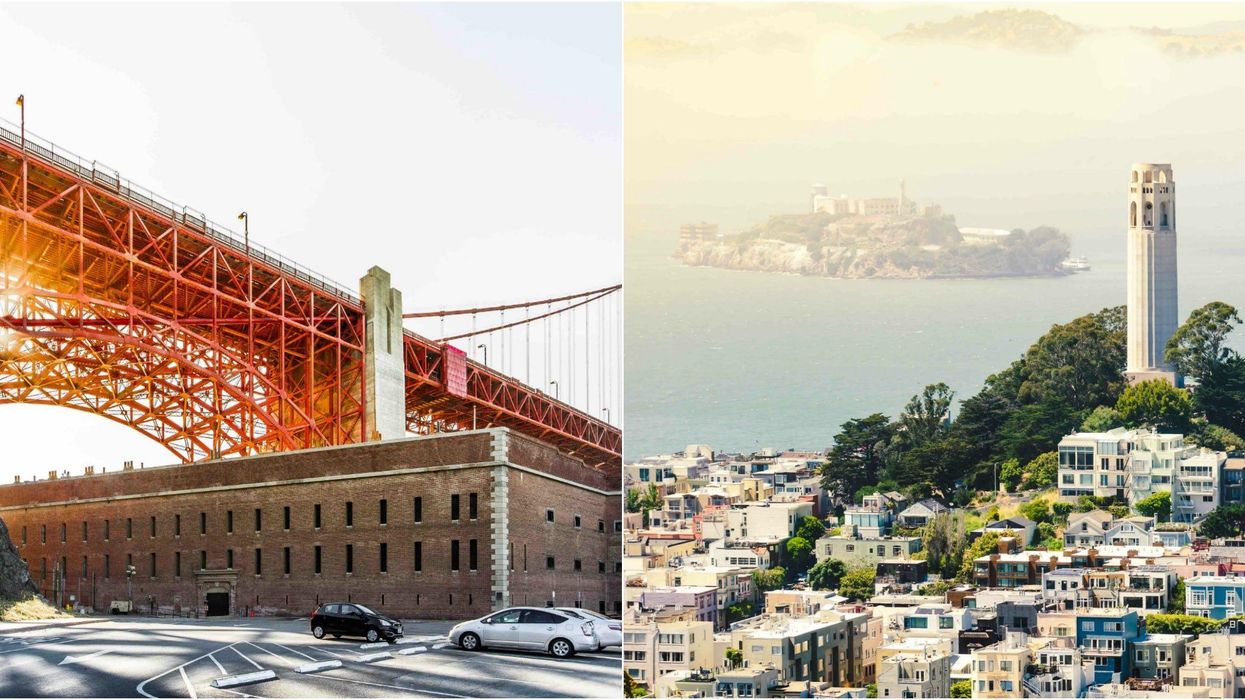
Astronomical rents and Silicon Valley money notwithstanding, a soulful San Francisco is still there for those who seek it
March 13 2017 4:14 PM EST
By continuing to use our site, you agree to our Privacy Policy and Terms of Use.

Astronomical rents and Silicon Valley money notwithstanding, a soulful San Francisco is still there for those who seek it
We used to live in San Francisco, right above Chinatown, on Nob Hill. That of course was before all the computer programmers poured in and reprogrammed the rents, so that our dump of a studio on Taylor Street became suddenly covetable. And expensive. I don’t go back often, partly because that flat Bay Area light can feel suicidal, and mostly because it’s a different city now. But when I do go back I’m not that taken with the city’s buff new attractions. Sure the recently expanded San Francisco Museum of Modern Art is a sprawling landmark but it’s mostly filled with inevitable Cindy Sherman selfies and the one punchline jokes (ceramic urinals!) that want to pass for something more. Sure Market Street is all hosed down, but it still feels like an aimless place. Sure you can get your fill of ahi poke and blanched brussels sprouts now but Chinatown’s old-school dim sum palaces are better. So when I return I prefer to pay homage to a more soulful San Francisco, before it became a very manly oligarchy, and make a circuit of traditional favorites. The run-down:
1—The Hotel: Book a room, even if it’s only for one night, at the Fairmont. I used to pass the hotel on my way to work every morning but I never went in. I should have. The cavernous grand dame lobby is all marble columns, grand staircases and gilded mirrors. The concierge team looks knowing, like that they could snag you a seat at the city’s trendiest two-table crab shack, with the city’s last beat poet, in under an hour. And the expansive views from the rooms in the newer tower building are an old Tony Bennet song. Maybe the hotel’s best throwback attraction though, too sincere to be camp, is the Tonga Room. That’s where you’ll find lots of bamboo circling a lap pool, all approximating a very tiny, suspect Pacific Island, and a menu featuring not just any pupu platter but the Royal one honoring King Tupou of Tonga.
2—The Food: We were poor when we lived in San Francisco but once a week we’d drag home one of those lacquered ducks from Chinatown, worth every penny we slowly counted out. The city of course is now filled with lots of wunderkind chefs (you’ll know them by those butcher knife tattoos) but I prefer the original cooks. This is still one of the country’s best cities for serious dim sum, which are a real lesson in locavore cooking; all those hacked up beaks, claws and fins are a slaughterhouse that remind you what being a carnivore really means. Purists should head to Koi Palace in Daly City, where the dining room is walled with fish tanks filled with everything that swims. But for a bougier version of dim sum Yank Sing is the best, starting with its juicy soup dumplings. If you’re itching for something more homespun San Francisco traditionalists always recommend Zuni Café, where the famous roast chicken deserves that fame. So does the view from the picture windows at Slanted Door; start dinner by sample from the food vendors in the adjoining, reformatted ferry building.
3—The Walk: The promenade through Chinatown and North Beach should feel like a tourist crawl by now but somehow the neighborhoods retain their authenticity. While Grant Avenue still comes lined with grocery store windows fringed by those hanging, golden ducks, the better choice is Stockton Street, where you can pick up the best barbecue pork buns at the Good Mong Kok Bakery. Then head over to Biordi Art Imports, one of North Beach’s still somehow surviving one-theme shops, where the Italian majolica ceramic plates, planters and vases come painted with lots of cherubs. Just around the corner is Café Trieste, one of the city’s oldest boho hangouts. Fittingly there are still some very original bohos sitting at the tables, probably all priced out of their Russian Hill apartments now, waiting for their cappuccinos to kick in.